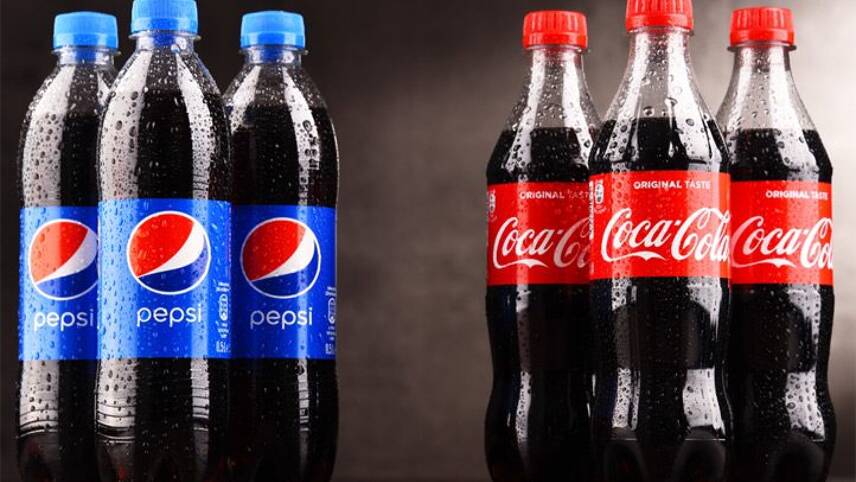Register for free and continue reading
Join our growing army of changemakers and get unlimited access to our premium content

Each business is a member of two or more organisations which lobbied against stricter legislation in the past two years
A new report from the Changing Markets Foundation accuses the businesses of “working behind-the-scenes to delay and derail legislation and ensure they can continue flooding the world with cheap, disposable plastic packaging” – despite the fact that they all have public targets around issues such as recycled content and recyclability. Many of the firms are also members of prominent joint initiatives which aim to tackle plastics pollution, like the Ellen MacArthur Foundation’s New Plastics Economy Global Commitment and the Alliance to End Plastic Waste.
Named in the ‘Talking Trash’ report are Coca-Cola, Colgate-Palmolive, Danone, Mars, Mondelēz International, Nestlé, PepsiCo, Perfetti Van Melle, Procter & Gamble (P&G) and Unilever. The Foundation accuses each of these businesses of being a member of at least two trade bodies which have lobbied against stricter policies since 2018, with Danone accused of partaking in ten such actions.
As the world’s largest producer of plastics packaging, Coca-Cola is singled out for a specific case study. The firm, which owns brands including SmartWater, Sprite and Fanta, is accused of opposing the introduction of a deposit return scheme for plastic bottles in Scotland and only making a U-turn once it became clear that the legislation would pass. It is still part of organisations which are fighting similar schemes in Kenya, Africa; Hainan, China; and Georgia, USA, the report states.
The Changing Markets Foundation’s campaigns director Nusa Urbancic said the findings “expose two-faced hypocrisy” of major food & drink and consumer goods firms – a sentiment echoed by City to Sea’s founder Natalie Fee, who said a “welcome light has been shone on the shadowy world of corporate lobbying”.
Brand reaction
edie has reached out to all of the brands named in the report for comment, except Perfetti Van Melle, which did not disclose information to the Changing Markets Foundation and does not seem to have a media contact channel.
A Danone spokesperson highlighted the fact that the report uses its data from 2018 and emphasised the plastics work it has conducted since then and the fact that it has published updated environmental figures. “We want to play our part in accelerating the transition from a linear to a circular economy,” they told edie. Moreover, they claimed that the firm is on track to meet its 2025 targets of sourcing 50% recycled content for plastics packaging and ensuring that all formats are recyclable, reusable or compostable.
A spokesperson for Coca-Cola said the company is working to “continually improve” its approach to plastics packaging and described previously missed plastics targets “an opportunity to learn”. They highlighted the firm’s existing World Without Waste Strategy and its work with the Ellen MacArthur Foundation but did not provide any information directly relating to lobbying activities.
“We’re under no illusion that we urgently need to get to a circular economy,” a Unilever representative told edie. “We know there is no single solution or quick fix and are fundamentally rethinking our approach to packaging and products.”
This article will be updated with additional responses as we receive them.
‘Smokescreen’ tactics
Aside from lobbying, the Changing Markets Foundation report identifies several other key tactics which corporates are using to “externalise” responsibility for the plastics they produce and distribute.
Through advertisements, public engagements and meetings with policymakers, the named companies have repeatedly cited consumers as the cause of plastic pollution and suggested that the costs of tackling the problem should lie with governments, local authorities and waste managers, the report states.
They are also accused of having funded behaviour change programmes, education schemes and labelling designed to encourage recycling, while continuing to produce hard-to-recycle packaging and oppose legislation which would increase investment in recycling infrastructure. To date, just 9% of the plastics produced are believed to have been successfully recycled.
A failure to simply produce less plastics by shifting to reuse models is also flagged in the report. While many of the named businesses are partaking in TerraCycle’s Loop platform or piloting their own refill offerings, these ultimately account for a small fraction of their business models, the report concludes.
With issues such as these in mind, the Foundation believes there is an opportune moment for “urgent and drastic legislative action” as governments develop Covid-19-related recovery packages.
The report recommends the introduction of mandatory deposit return systems in most nations and states that all nations should aim to have at least 90% of their plastic waste separated for recycling. Reuse targets and financial incentives should also be used to support greater rates of reuse and refill, scaling these models up dramatically.
“The voluntary initiatives and commitments by the industry have failed,” Urbanci concluded. “Policymakers should look past the industry smokescreen and adopt proven, progressive legislation globally to create the systemic change that this crisis so urgently needs.”
The publication of the report comes shortly after a major research project found that the volume of plastic on the market will double within 20 years without a step-change in action from governments and businesses. At the same time, the volume of plastic entering oceans and waterways will triple, and the global ocean plastic stock will quadruple.
Sarah George


Please login or Register to leave a comment.